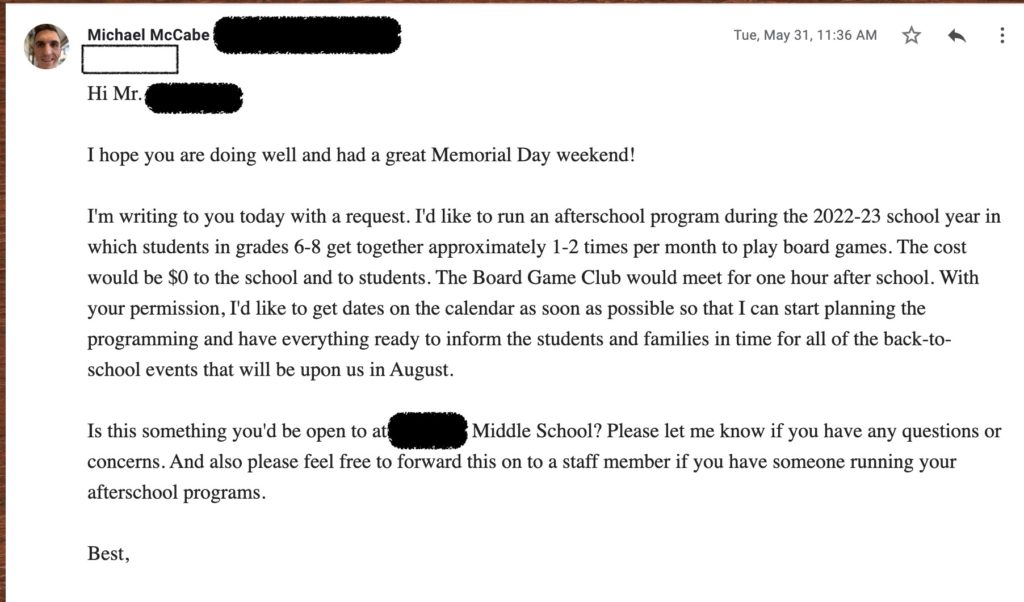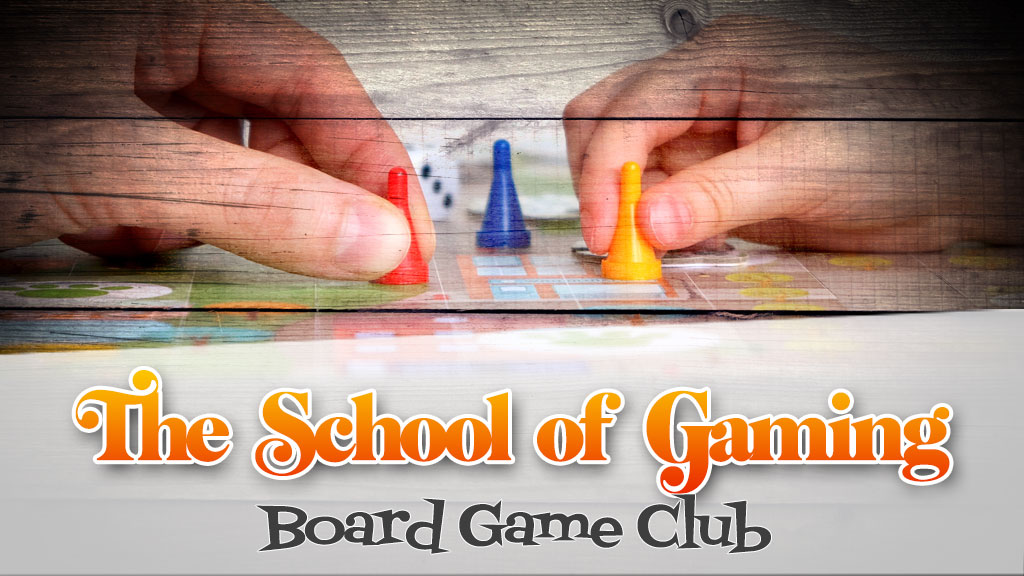As you go about your gameschooling adventure, you may find yourself wanting to spread the excitement and learning to others. One way to do that, is to run an afterschool program. In the education field, afterschool program is often abbreviated to ASP, I despise acronyms, so I’m going to use the full words in this post. Just know that if you go searching around for information, you’re bound to run into that abbreviation. On your search, you’ll also not the myriad of positive benefits associated with an engaging afterschool program. A Google Scholar search of “benefits of afterschool programs in middle school” yields a trove of research demonstrating positive social behaviors and reading fluency increase. But that research, although interesting to me, is likely why you are not here. You’re reading this post because you want to know how to start an afterschool program.
So, where do you start? You just start.
The first thing you need to do, is reach out to the building principal or building leader. Here’s an example of an email I sent to my child’s principal a few months ago:

I got a response to that email within an hour and the building principal supported the program idea and then delegated scheduling to the person I’ll be working with. In a bigger system you may get delegated a few times and even have a phone interview. Since I’ve taught in that school system before and have kids in it, I was fortunate to get a straightforward “Yes”.
There’s two pieces of information you’re going to want to know before you send the email or reach out: frequency and duration. How often does the club meet and for how long? For me, I’ve always gone with 1-hour and I believe I’ve always gone on Monday’s. You do what’s best for you. The first game club I led had retro video games one week and board games the next and it was literally calendared out and managed by the students where I taught.
Define your format.The format I prefer is: I choose, you choose, we choose. Meaning, one out of every three sessions, I will choose and setup the games. One out of three sessions the students will choose and setup the games. One out of three sessions we’ll seek to reach consensus on what we were going to play. The first few board game clubs, I’m going to lead a handful of highly engaging and easy to teach games. I think this goes without saying, but I’m going to say it, error on the side of caution, especially, if you do not teach at the school. Avoid gore, violence, and all things with innuendo. I embed the family friendly disclaimer directly into my format.
What to expect?
Having led a afterschool game club in the past, here’s a few other random learnings I wanted to pass on to you as you think about going through this process:
- Expect to have to complete a background check, that’s standard in public schools. In a private school, you may have to go through a training required by the diocese or larger organization.
- Expect competition for the kid’s time. Time is still the greatest resource and for 12-16 year olds they can be and many are very very busy. Sports, activities, clubs, and classes; all will be pulling for their time.
- In that vein, having a club where people are free to come and go, will probably be a good thing. I’ve always encouraged “the rule of two feet” feel free to leave the table and if you have a way home, feel free to leave at any time. Unlocking the control of the young adults time and providing direct personal agency leads to happy gamers.
- Expect half of the people that show up are only there to hang out with their friends.
Ok, so why go to all this trouble and take this risk?
You will never feel better than when you positively impact youth. Never. It’s worth it.


You made a good point that having space for kids to speak will help a lot when in a children’s afterschool enrichment program. I’m interested in looking for a good one soon because I think my son needs to be able to socialize more. His reclusive nature might be detrimental to his development.